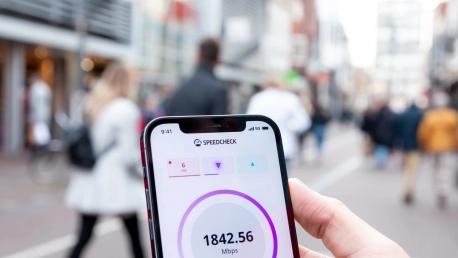2020 was a year full of unexpected events, with the COVID-19 pandemic disrupting industries and businesses around the world. Saying the healthcare crisis was a game-changer for the telecommunications industry would probably be an understatement, but as people everywhere were left to discover, the pandemic proved to be a two-edged sword. This industry is not only affected by the crisis, but it also affects the crisis and its outcomes. Networks are now more important than ever, but that doesn’t mean the future of 5G networks is certain in a post-pandemic world.
From Crisis Management to Conspiracy Theories
According to PwC, a global network of firms delivering world-class assurance, tax, and consulting services for businesses around the world, accepting the crisis, and providing a strong COVID-19 response plan was extremely important for network providers across the globe. As people everywhere moved to remote work and canceled both personal and business travel plans, the need for mobile communications increased. A proactive, data-driven crisis response was needed while upgrading networks became more important than ever for providers. However, right from the beginning of the race for 5G networks, it became clear that not everyone was in favor of this upgrade.
In the spring of 2020, people started destroying telecommunication infrastructure across the UK, after a new conspiracy theory emerged. According to this idea, 5G technology was strongly connected to the spread of the new coronavirus. While expert after expert kept saying that the new high-speed system is risk-free for all, problems were far from over for the telecommunications industry. In November, when cell phone towers were vandalized across Tennessee, COVID-19 conspiracy theories became the main suspect. As we entered 2021, many hoped that the newly discovered vaccines could provide a sense of hope and normalcy, but it seems that conspiracy theories may be here to stay.
Is the Recent Past Reshaping the Future?
Conspiracy theories may sound like a relic from the past, albeit the recent one. However, events seem to point to the contrary, as three telecommunications towers belonging to Vodacom and MTN were burned down in South Africa in January, 2021. According to Reuters, the reason was a resurgence in conspiracy theories that connect the spread of the COVID-19 pandemic to 5G technology. Vodacom’s spokesman Byron Kennedy soon made an announcement stating that no serious scientific evidence can link 5G technologies to the spread of the virus. He went on to say that the vandalized infrastructure is currently being restored, and the regrettable event had no impact on Vodacom’s network.
Even so, events like these may have negative consequences for network providers around the world, as repair costs may rise, while trust in new technologies declines. As scientists across the world struggle to find a cure for COVID-19 and work with policy-makers to make vaccines more widely available, there is little time to analyze and debunk conspiracy theories. However, in order to fight the spread of misinformation and protect their infrastructure, network providers and journalists should probably try to uncover their origin first.
Back to Basics
While conspiracy theories are probably as old as time, the correlation between radio waves and disease or mind control is much more recent. According to experts, this particular conspiracy theory shares similarities with reports that circulated back in the 1990s about the High-frequency Active Auroral Research Program (HAARP) funded by the U.S. military. Although this program conducted experiments into the ionosphere by using radio waves until 2014, when it was closed, conspiracy theorists allege it was actually used for both mind and weather control. In response to the rumors, the University of Alaska Fairbanks Geophysical Institute, which housed the program, decided to open its doors to all for visits in 2016.
The response may have come too late to prevent the spread of rumors that later morphed into other conspiracy theories, including the link between 5G technology and COVID-19. This is precisely why network providers around the world may need to respond faster now to any rumors, regardless of how trivial they seem. After all, a proactive response to the current crisis shouldn’t mean focusing only on the matters at hand, but also on providing correct information to individuals now working from home.
The telecommunications industry has been facilitating communication between people and businesses for almost two centuries, passing through many delicate situations in the process. The COVID-19 pandemic is no different, and it shouldn’t prevent the adoption of new technologies and the updating of existing ones.









